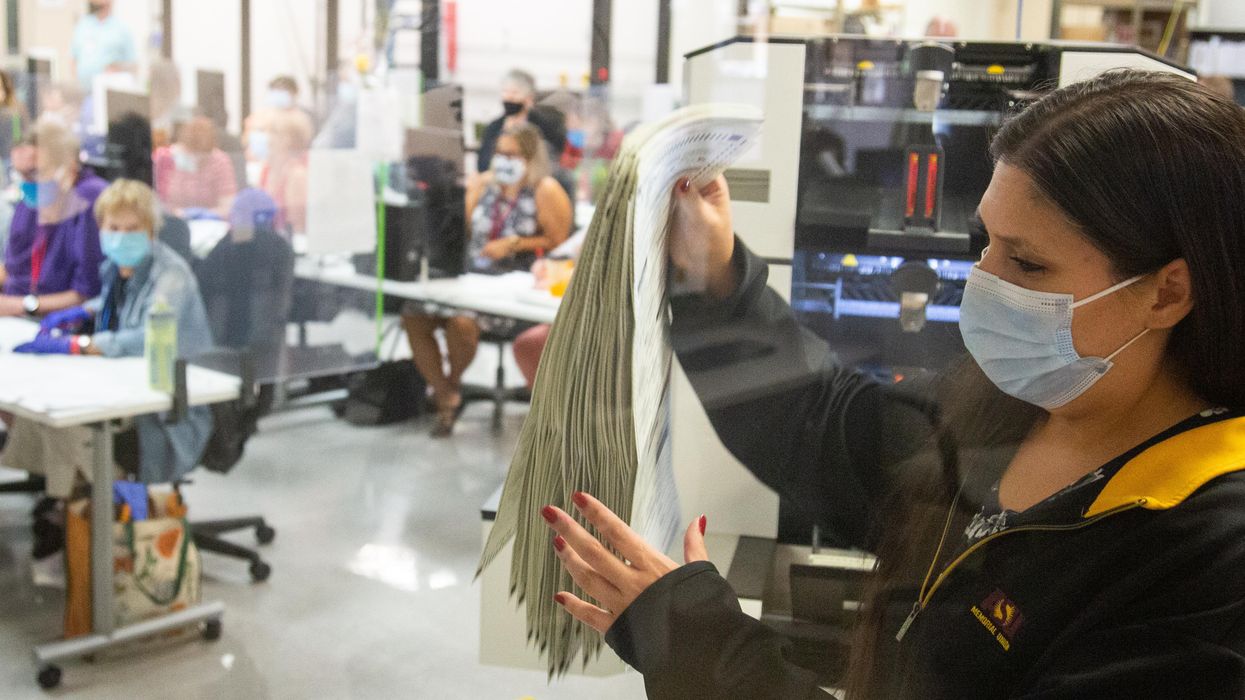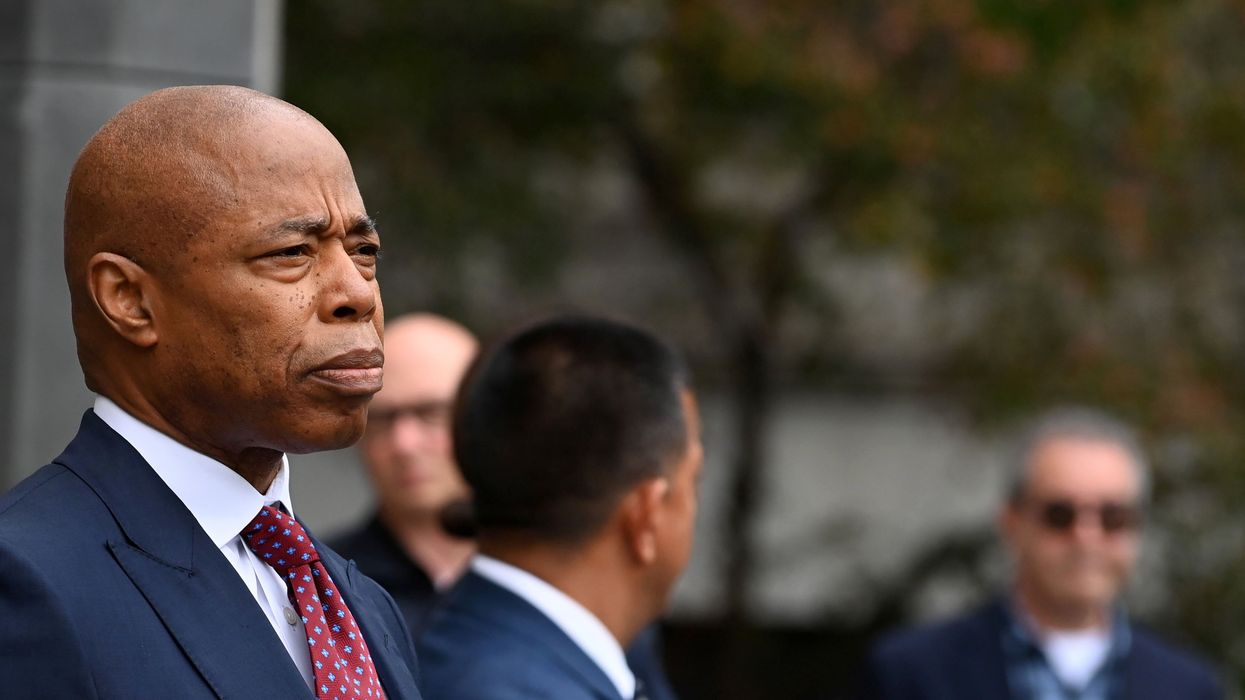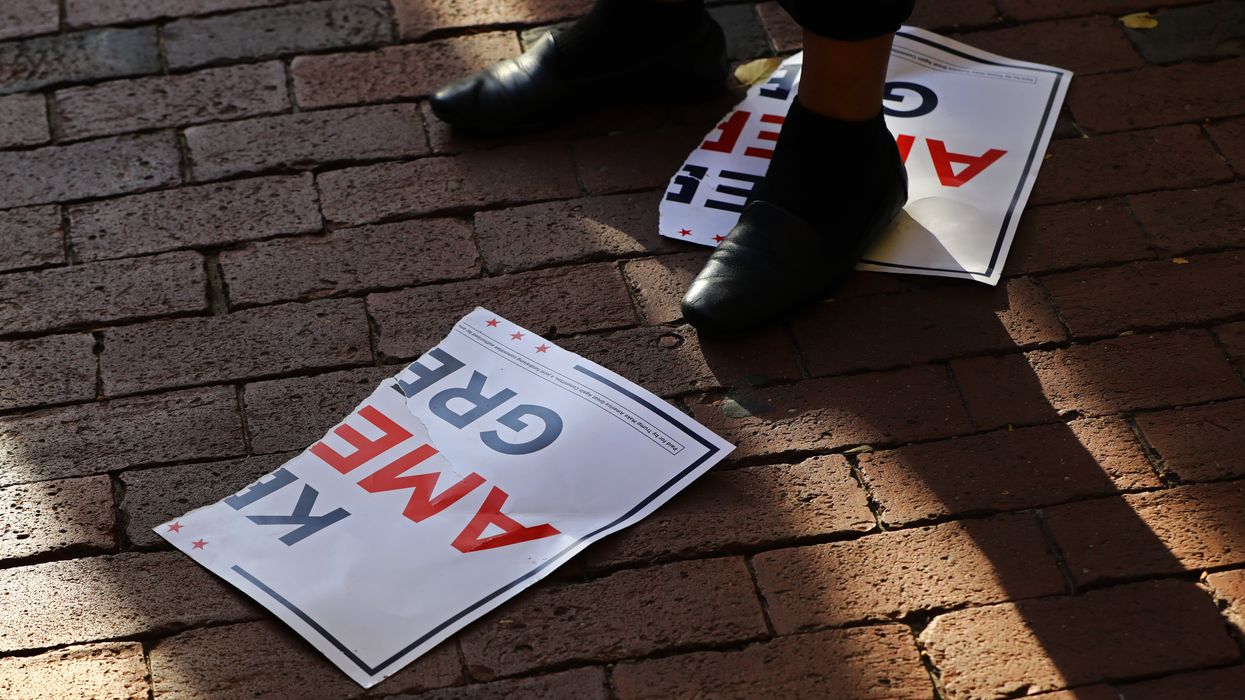Herbits is an American businessman and former consultant to several secretaries of defense.
Former President Donald Trump has not yet committed to accepting the results of the 2024 election. He continuously maintains that the 2020 election was stolen, despite 60 failed lawsuits. And his behavior on Jan. 6, 2021 demonstrates beyond any doubt that he has no sense of responsibility to democracy.
Moreover, report after report reveals various tactics that his supporters around the country are preparing so they can to prevent him from losing again this time — focusing on voting constraints and ballot processing.
For instance, the nonpartisan Center for Responsibility and Ethics in Washington has identified at least 35 election officials in place for the 2024 election who were 2020 election deniers.
North Carolina’s State Board of Elections, with a 3-2 Republican majority, has empowered each county board to demand further information before certifying vote totals. Potential delays could prevent North Carolina certification and possibly throw the election to the House of Representatives.
The greatest and, frankly, likeliest threat is the hyperpartisan Supreme Court — perhaps the most political court since the Taney Court’s decision in the 1847 Dred Scot decision, which led in a straight line to the Civil War. Through any number of tactics, this court can hold up the results of cases long enough to prevent any candidate from winning 270 Electoral College votes. If that happens, the next president would be elected by the House of Representatives, where each state delegation gets one vote.
The Supreme Court has original jurisdiction when there are differences between states. However, any of the 13 appellate courts may make a decision in favor of the citizens or the state where a case has been decided at the local level and then appealed, possibly all the way to the Supreme Court. Given Chief Justice John Roberts’ history of slow-walking cases in favor of Donald Trump, that is a real possibility. If the Supreme Court does not apply a final decision before Jan. 3, 2025, when the Electoral College meets, he has created a sure route to a Republican victory in the House.
Why would the justices do that? Look at Roberts’ record — an amplification of the Taney decision. He has systematically undermined the one person, one vote premise by a series of decisions: Citizens United, Shelby County and others. (See the detailed report of the nonpartisan Campaign Legal Center.
The federal government has a duty to assure safe and fair elections. Given the last four years, it should undertake to ensure vote counting can be watched from a segregated area. While the Associated Press and its stringers are likely to be witnesses to the counting of the ballots, where is the U.S. government? Why not have the FBI, DEA, AFT, Secret Service and other federal agencies assign their own witnesses to watch the counting so that they, with their credibility, may be called as witnesses in cases that do go to court.
Such an effort by federal agencies to assign observers, without authority to act, would not require congressional approval. It is not unusual for such agents, as it is for police officers everywhere, to observe an event where they may be troubling behavior. Were an incident to occur, the federal agent would not have any authority to act; but their observations as a witness in a courtroom would be like those of any other citizen, though likely to carry a degree of integrity that would be welcome.
Sixty some cases were filed in 2020. We can expect even more this year given the prominence of election deniers. These respected officials' testimony may be helpful for the courts and juries to make better decisions.
None of these individuals should, of course, be present during the actual voting process itself. Most states permit representatives of both parties to be in the voting rooms, both to watch the process and to assist voters where questions arise before ballots are cast.
I have served over the years in such a capacity. In one egregious case, I had to call a state emergency number to have white uniformed police officers removed for standing on the steps to the precinct voting room in a completely Black neighborhood in complete violation of voter intimidation regulations.
Every step we can take to protect the right to vote should be considered, especially given the temperature of this year’s election.



















Why does the Trump family always get a pass?